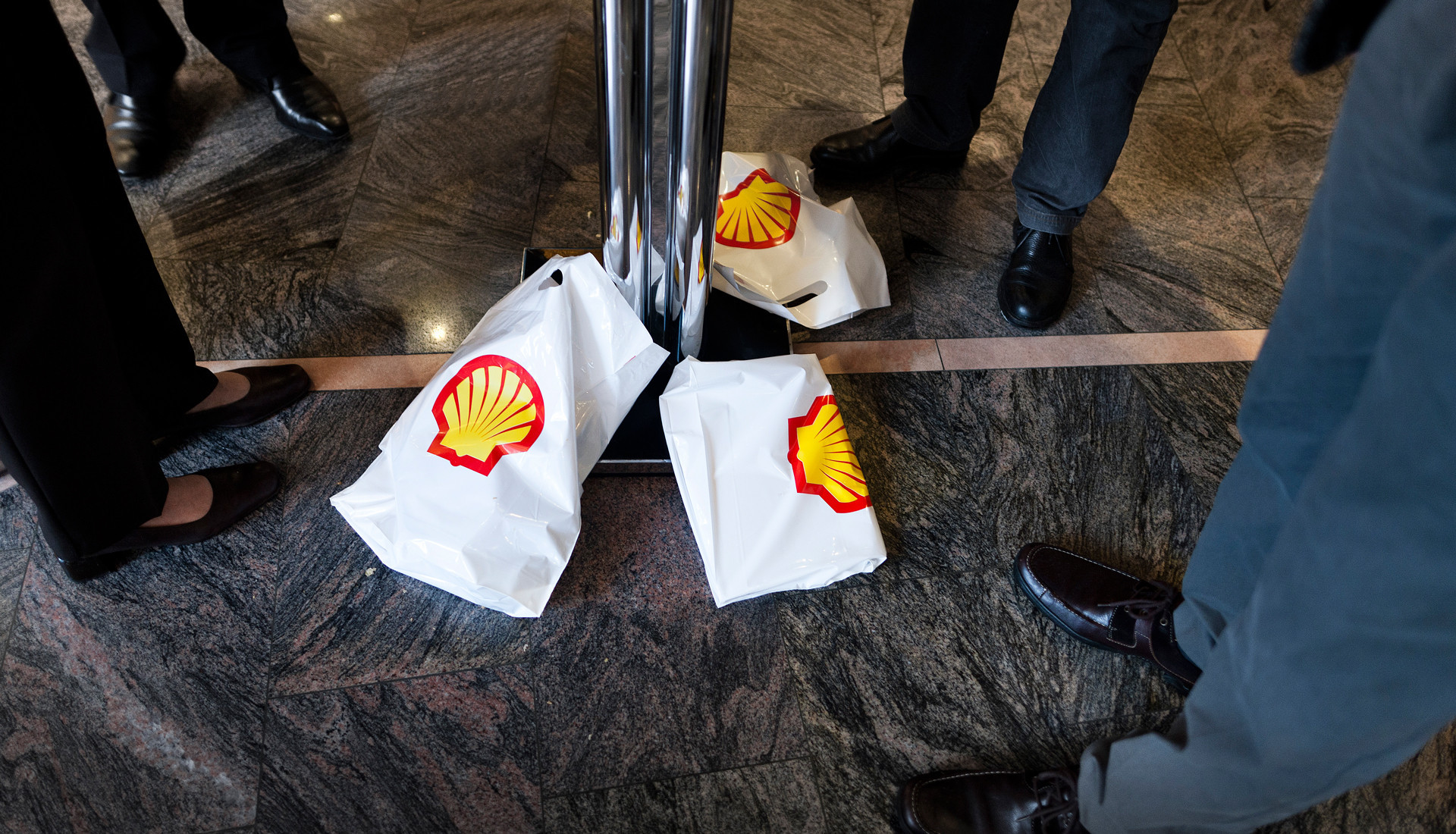Dear Shell employees,
People are always talking about you rather than with you. That bothers your CEO, Ben van Beurden. In the company magazine, he said the hardest thing about leading a big energy company was “[being] recognised as a valuable partner in the discussion on how to combat climate change while ensuring that people have access to the energy they need.”
In fact, Van Beurden continued, “It seems at times that those people who understand the energy system best have little or no credibility in the eyes of the public, when talking about how the transition to a low-carbon society can realistically be achieved.”
He suggested that this had to do with “the belief that there are two groups of people – those with good intentions for the planet and people with bad intentions – and guess where Shell gets placed? I object to that notion. [...] I also want the best for the planet and its people.”
“Which planet are you living on, Mr. Van Beurden?” retorted a journalist at Dutch weekly Vrij Nederland. “Shell doesn’t want what’s best for the earth. Shell mainly wants what’s best for Shell.” The journalist recalled how the company had lobbied against ambitious renewable-energy targets for the EU. “If you want to convince the public, you’ll have to come up with a better story.”
This squabble sums up the mutual incomprehension between your company and the media. For the past three years, I’ve made climate and energy affairs my journalistic specialty, and my curiosity about Shell has steadily increased. It’s become clear to me that until Shell and other fossil fuel companies start working harder to help find a solution, the world faces an unacceptably high risk of potentially catastrophic climate change. But I don’t want to just keep saying this to you – I want to discuss it with you.
Do you know something outsiders don’t?
Van Beurden said in Shell’s company magazine that “there is a now a mistaken belief among some people that climate change can be solved in a very simple way. Those who understand the energy system know it can’t.” Do you know something outsiders don’t? Do you think society – and journalists like me – misunderstand what’s required for making the transition to clean energy? If so, email me and we’ll set up a meeting.
I’m especially interested in meeting with you if you think I’m asking the wrong questions entirely, or if you think I’m just another journalist who doesn’t understand Shell. Please set me straight.
Because a lot of people have questions, you know. Is Shell on the right side of history? Why can’t its future, even now, be reconciled with the goal of keeping global warming well below two degrees Celsius? When friends and family ask you about that, what do you say? What do you say when your kids start asking?
From a distance, it looks as if you spend your days supplying products that help disrupt the climate and then put the kids to bed at night crossing your fingers that they’ll have a good future.
We know one strategy for dealing with this conflict: deflecting the question of blame back onto society, with its addiction to fossil fuels. Van Beurden was asked recently if Shell was planning to do its part to limit climate change by pumping less oil and gas. He explained that what will ultimately help stop climate change is reducing CO2 emissions, and consumers emit CO2. “I pump up as much as I can to meet the demand,” he said. A realistic answer, perhaps, but one many outsiders consider feeble. What’s your take on this?
What’s Shell doing to fight climate change?
I talked to someone from the oil and gas industry – a former Shell employee, in fact – who feels that society increasingly regards him as it would a peddler of arms or drugs. His fellow citizens convey their disapproval as they sit next to him on airplanes, blind to their own role in the matter (jet fuel, anyone?). How do you deal with such criticism?
Perhaps you’re wondering why I’m approaching you specifically. Well, Royal Dutch Shell is one of the Netherlands’s most profitable companies. It’s an iconic firm with a rich history and close ties to the Dutch government. Many of you earn fantastic salaries and enjoy great benefits. After Shell completes its takeover of the BG Group, 100,000 people will work for the company (though low oil prices mean 10,000 jobs are in danger). You operate in more than 140 countries, executing large-scale projects with the might of a well-trained army.
The seriousness of climate change has never been up for debate at Shell – in contrast to your U.S. colleagues at ExxonMobil. But does your take on climate entail a different course of action? We know, for example, you’re working on carbon storage, arguing for a carbon tax, and exploring hydrogen as a clean fuel for the future. But is that enough? Can Shell survive without more radical change? Shell saw profits drop by half in 2015 due to low oil prices. Many in the industry are in trouble. Van Beurden keeps saying that whether oil prices are high or low, the world needs fossil energy. What if he’s wrong? Will you still have a job in 10 years?
In the coming months, I hope to talk to you about all of this. I’m taking inspiration from the journalist Joris Luyendijk’s work in London’s financial district, The City. He interviewed 200 bankers, posted extensive reports of the conversations on The Guardian’s website, and subsequently published a much-talked-about book on the financial industry. Luyendijk concluded that banking has become uncontrollable, a massive threat to society. But he did so only after he’d separated the people from the system – after he’d acted as an honest broker and given a voice to people who’d previously remained unheard (and therefore unpopular).
And now I want to give you a chance to speak. Starting in March, I aim to begin interviewing Shell employees working in a wide range of positions and levels in the company. Will you share your experiences and insights with me? Whether you’re a manager, a researcher, a lawyer, an HR person, a well engineer, a marketer or something else, I want to hear your story. Email me at jelmer@decorrespondent.nl and we’ll make an appointment. Yes, I know you aren’t officially allowed to speak on behalf of Shell without permission from the Media Relations department. But you’ll be talking to me as a private individual, and no one needs to know: you’ll remain anonymous. And if you’d prefer to help with the project in some other way, that would certainly be welcome too.
I think Van Beurden is right in saying the voices of those who know the energy system best aren’t being heard.
Let’s do something to change that.
Perhaps you don’t work for Shell but know someone who does? Or would you like to help with the project by sharing this story on social media? Please feel free to help spread the word.
My thanks go to Joris Luyendijk and my colleagues at The Correspondent for helping me plan this project, and to all the readers who responded when I asked them, “What do you want to know about Shell?”




